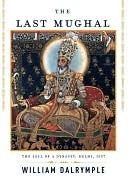More on this book
Community
Kindle Notes & Highlights
At the same time that most of Catholic Europe was given over to the Inquisition, and in Rome Giordano Bruno was being burnt for heresy at the stake in the Campo dei Fiori, in India the Mughal Emperor Akbar was holding multi-faith symposia in his palace and declaring that “no man should be interfered with on account of religion, and anyone is to be allowed to go over to a religion that pleases him.”
But what was built by the tact and conciliation of the first five of the Great Mughals was destroyed by the harsh and repressive rule of the sixth. Shah Jahan’s son Aurangzeb was a ruler as bigoted as the best of his predecessors had been tolerant.
of the great cities of the world, only Rome, Istanbul and Cairo can even begin to rival Delhi for the sheer volume and density of historic remains.
It was not the British per se, so much as specific groups with a specific imperial agenda—namely the Evangelicals and Utilitarians—who ushered in the most obnoxious phase of colonialism, a change which adversely affected the White Mughals as much as it did the Great Mughals.
It was a city that had yet to suffer the collapse of self-belief that inevitably comes with the onset of open and unbridled colonialism.
After all, Urdu was born in Delhi:*9 it was a language the poet and literary historian Azad described as “an orphan found wandering in the bazaars of Shahjahanabad.”
For the first time there was a feeling that technologically, economically and politically, as well as culturally, the British had nothing to learn from India and much to teach; it did not take long for imperial arrogance to set in. This arrogance, when combined with the rise of Evangelical Christianity, slowly came to affect all aspects of relations between the British and the Indians.
They have gone far ahead of our Oriental forebears. Wind and wave they have rendered useless. They are sailing their ships under fire and steam. They are creating music without the use of the mizrab [plucker]. With their magic, words fly through the air like birds. Air has been set on fire…Cities are being lighted without oil lamps. This new law makes all other laws obsolete. Why must you pick up straws out of old time-swept barns while a treasure trove of pearls lies at your feet?
The king was like the king on the chessboard after the checkmate.
Across Hindustan, of the 139,000 sepoys in the Bengal Army, all but 7,796 had now risen against the Company, and over half were now either in Delhi or on their way to it.
IF ZAFAR’S DECISION to bless the Uprising on the afternoon of 11 May was a crucial turning point that transformed an army mutiny into the largest rebellion against their empire that the British would face in the course of the entire nineteenth century, so Zafar’s catastrophic failure of nerve on the evening of 16 September was the decisive moment that marked the beginning of the end of that rebellion.
That night, the 16th, was the last, after more than two hundred years, that a Mughal Emperor spent in the Red Fort of Shahjahanabad.
At 4 a.m. on 7 October, 332 years after Babur first conquered the city, the last Mughal Emperor left Delhi on a bullock cart.


